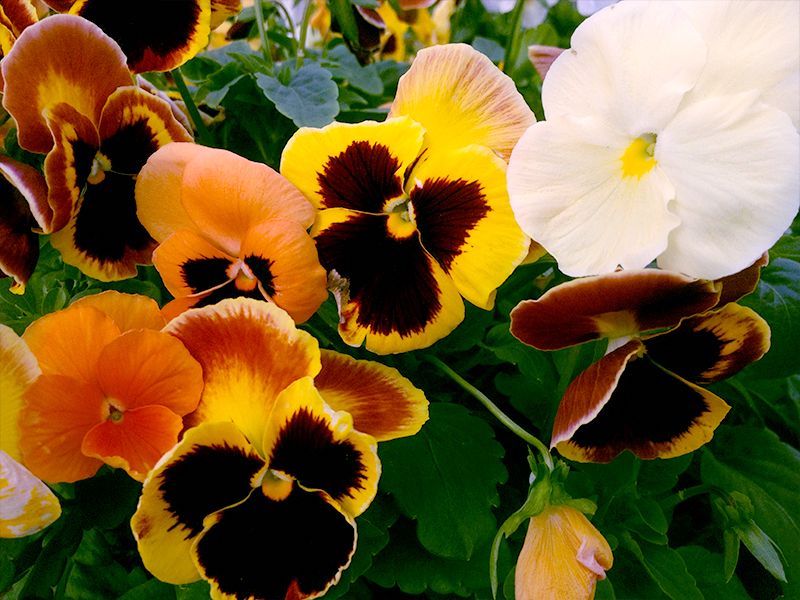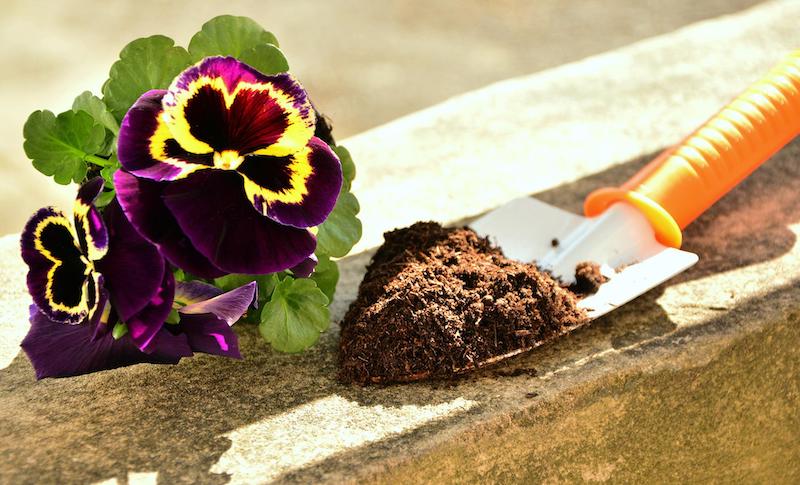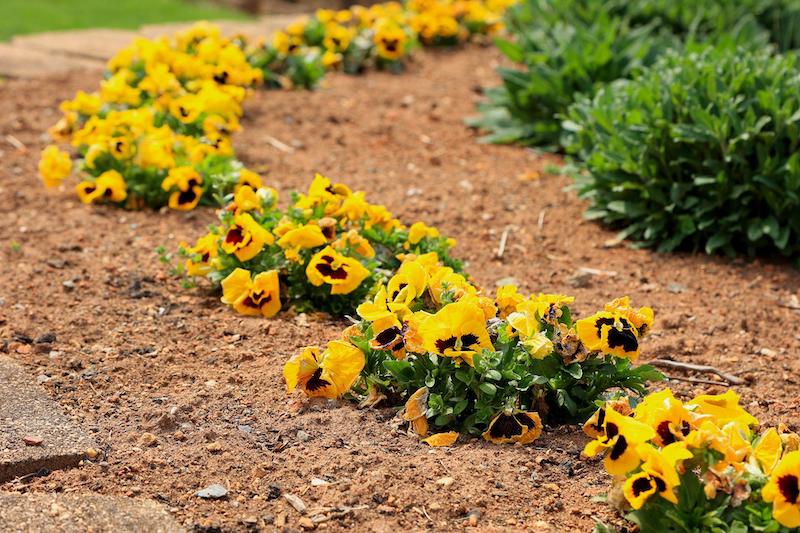Pansies are flowering plants that provide striking good looks and dependable color, making them well loved by many gardeners. The unique, almost heart-shaped blooms thrive in partial light and add vibrant color to a shady corner of a landscape or patio. Also known as Viola, Pansy plants are not fussy but require a certain level of care to grow and thrive.

What You Need To Plant Pansies
- Trowel
- Compost or manure
- Garden spade
- Good location
- Water source

Where to Plant Pansies
Pansies have a mounded, upright growth habit, and some varieties may trail. Place plants, so the top of the root ball is even with the soil and not below the soil line. This fast-growing plant needs partial sunlight, but some cultivars can handle limited amounts of bright light. The soil must allow drainage and can be rich and slightly acidic.
Pansies Spacing
How much space to leave between plants depends on the type of Pansy and the desired look. Generally, leave 6 to 10 inches between plants. Leave more space to provide room for the branches to reach and spread. If you plan to trim the plants to maintain a more compact form, they can be planted closer together.

Steps To Plant Pansies
Step 1 - Select a spot that receives partial sun
Step 2 - Dig a hole about 2 to 3 times as wide as the root ball and slightly deeper
Step 3 - Mix manure or organic compost into the soil
Step 4 - Place the root ball in the prepared hole, and position the top of the root ball even with the soil level
Step 5 - Backfill the hole and firmly press the ground into place
Step 6 - Drench the soil around the plant to saturate the roots
When to Plant Pansies
Pansies are herbaceous perennials, and spring is the best time to plant. Giving the plant as much of the growing season as possible will enable this plant to come back in the spring. Pansies planted later in the growing season may not have enough time to acclimate and may grow as an annual.
Transplanting Pansies
Pansies can be transplanted any time after the threat of frost has passed. Moving plants early in the growing season is best, so the roots have time to acclimate to the new location. Plants moved later in the season may not have enough time to settle in before cold weather hits.
 |
Author Alison Cotsonas - Published 08-01-2022 |


